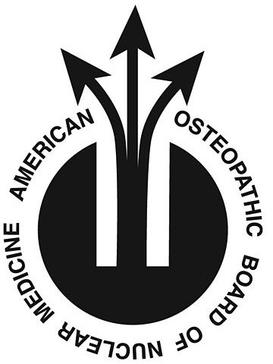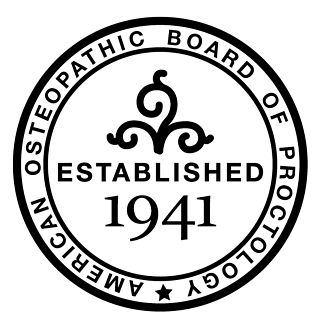A medical specialty is a branch of medical practice that is focused on a defined group of patients, diseases, skills, or philosophy. Examples include those branches of medicine that deal exclusively with children (paediatrics), cancer (oncology), laboratory medicine (pathology), or primary care. After completing medical school or other basic training, physicians or surgeons and other clinicians usually further their medical education in a specific specialty of medicine by completing a multiple-year residency to become a specialist.
The American Board of Medical Specialties (ABMS) is a non-profit organization established in 1933 which represents 24 broad areas of specialty medicine. ABMS is the largest and most widely recognized physician-led specialty certification organization in the United States. The other certification organizations in the United States are the American Board of Physician Specialties and American Osteopathic Association Bureau of Osteopathic Specialists.
Maintenance of Certification (MOC) is a recently implemented and controversial process of physician certification maintenance through one of the 24 approved medical specialty boards of the American Board of Medical Specialties (ABMS) and the 18 approved medical specialty boards of the American Osteopathic Association (AOA). The MOC process is controversial within the medical community, with proponents claiming that it is a voluntary program that improves physician knowledge and demonstrates a commitment to lifelong learning. Critics claim that MOC is an expensive, burdensome, involuntary and clinically irrelevant process that has been created primarily as a money-making scheme for the ABMS and the AOA.
The American Board of Physician Specialties (ABPS), the official certifying body for the American Association of Physician Specialists (AAPS) is a non-profit umbrella organization for sixteen medical specialty boards that certifies and re-certifies physicians in fourteen medical specialties in the United States and Canada. It is one of three certifying bodies in the United States in addition to the American Board of Medical Specialties, and American Osteopathic Association Bureau of Osteopathic Specialists. The ABPS oversees Doctor of Medicine (M.D.) and Doctor of Osteopathic Medicine (D.O.) certification in the United States. The ABPS assists its Member Boards in developing and implementing educational and professional standards to evaluate and certify physician specialists. It is recognized by the U.S. Department of Labor as well as the Centers for Medicare and Medicaid Services (CMS).

The American Osteopathic Board of Emergency Medicine (AOBEM) is an organization that provides board certification to qualified Doctors of Osteopathic Medicine who specialize in the medical and surgical treatment of acutely ill patients with advanced cardiac life support, trauma, and the management of other life-threatening medical issues. The AOBEM is one of 18 medical specialty certifying boards of the American Osteopathic Association Bureau of Osteopathic Specialists approved by the American Osteopathic Association (AOA).
The National Board of Trial Advocacy (NBTA) is a non-profit board certification organization in the United States which administers eight national board certification programs for attorneys in Civil Trial Law, Criminal Trial Law, Truck Accident Law, Family Trial Law, Civil Practice Advocacy, Social Security Disability Law, Complex Litigation, and Patent Litigation. Each practice area is managed by a specialty program commission of five leading practitioners. To become board-certified, an attorney must meet substantial professional requirements and undergo a peer review process. There are currently close to 2,000 attorneys who are certified by the NBTA. The organization is led by board of directors of noted trial lawyers, law professors, and judges.
The American Osteopathic Board of Neurology and Psychiatry (AOBNP) is an organization that provides board certification to qualified Doctors of Osteopathic Medicine (D.O.) and non-osteopathic physicians who specialize in disorders of the nervous system (neurologists) and to qualified Doctors of Osteopathic Medicine and physicians who specialize in the diagnosis and treatment of mental disorders (psychiatrists).

The American Osteopathic Board of Family Physicians (AOBFP) is an organization that provides board certification to qualified osteopathic physicians (D.O.) who specialize in delivering comprehensive primary care for patients of all ages, genders, and addressing all parts of the body. The board is one 18 medical specialty certifying boards of the American Osteopathic Association Bureau of Osteopathic Specialists approved by the American Osteopathic Association (AOA), and was established in 1972. As of April 2012, 6,344 osteopathic family physicians held active certification with the AOBFP.

The American Osteopathic Board of Internal Medicine (AOBIM) is an organization that provides board certification to qualified Doctors of Osteopathic Medicine (D.O.) who specialize in the prevention, diagnosis, and treatment of disease in adults (internists). The board is one of 18 medical specialty certifying boards of the American Osteopathic Association Bureau of Osteopathic Specialists approved by the American Osteopathic Association (AOA), and was established in 1942. As of December 2011, 3,072 osteopathic internal medical physicians held active certification with the AOBIM.
The American Osteopathic Board of Neuromusculoskeletal Medicine (AOBNMM) is an organization that provides board certification to qualified Doctors of Osteopathic Medicine (DO), and Medical Doctors (MD) in the medical specialty of osteopathic neuromusculoskeletal medicine (ONMM). The AOBNMM is one of 18 medical specialty certifying boards of the American Osteopathic Association Bureau of Osteopathic Specialists approved by the American Osteopathic Association (AOA). As of December 2022, over 1000 osteopathic physicians hold active certification with the AOBNMM.
The American Osteopathic Board of Surgery (AOBS) is an organization that provides board certification to qualified Doctors of Osteopathic Medicine (D.O.) who specialize in the use of surgery to aid in the diagnosis and treatment of disease (surgeons). The board is one 18 medical specialty certifying boards of the American Osteopathic Association Bureau of Osteopathic Specialists approved by the American Osteopathic Association (AOA). As of 2011, 1,279 osteopathic physicians held active certification with the AOBS. The AOBS is one of two certifying boards for surgeons in the United States; the other certifying board is the American Board of Surgery of the American Board of Medical Specialties. Fellows of the AOBS are eligible for full membership in major U.S. surgical societies such as the American College of Surgeons (ACS) and the Society of Thoracic Surgeons. Board certified surgeons of the AOBS are also eligible for membership in the American Society for Metabolic & Bariatric Surgery.
The American Osteopathic Board of Dermatology (AOBD) is an organization that provides board certification to qualified Doctors of Osteopathic Medicine (D.O.) who specialize in the medical and surgical treatment of disorders of the skin (dermatologists). The board is one of 18 medical specialty certifying boards of the American Osteopathic Association Bureau of Osteopathic Specialists approved by the American Osteopathic Association (AOA).

The American Osteopathic Board of Anesthesiology (AOBA) is an organization that provides board certification to qualified Doctors of Osteopathic Medicine (D.O.) and non-osteopathic physicians who specialize in the administration of anesthetic agents and perioperative medicine (anesthesiologists). The board is one of 16 medical specialty certifying boards of the American Osteopathic Association Bureau of Osteopathic Specialists approved by the American Osteopathic Association (AOA), and was established in 1956.
The American Osteopathic Boards of Ophthalmology and Otolaryngology - Head and Neck Surgery (AOBOO) is a joint organization that provides board certification to qualified Doctors of Osteopathic Medicine (D.O.) who specialize in the medical and surgical treatment of the eye (ophthalmologists) and to qualified Doctors of Osteopathic Medicine who specialize in the medical and surgical treatment of the ears, nose, and throat (otolaryngologists). The boards belong to the 18 medical specialty certifying boards approved by the American Osteopathic Association Bureau of Osteopathic Specialists of the American Osteopathic Association. As of December 2011, 736 osteopathic ophthalmologists and otolaryngologists held active certification with the AOBOO.

The American Osteopathic Board of Radiology (AOBR) is an organization that provides board certification to qualified Doctors of Osteopathic Medicine (D.O.) who specialize in the use of imaging in the diagnosis and treatment of disease (radiologists). The board is one 18 medical specialty certifying boards of the American Osteopathic Association Bureau of Osteopathic Specialists approved by the American Osteopathic Association (AOA), and was established in 1939. The American Osteopathic Board of Radiology and the American Board of Radiology are the two certifying boards for radiologists in the United States. As of December 2011, 732 osteopathic radiologists held active certification with the AOBR. Radiologists board certified by the AOBR are eligible for membership in the American College of Radiology.

The American Osteopathic Board of Nuclear Medicine (AOBNM) is an organization that provides board certification to qualified Doctors of Osteopathic Medicine (D.O.) who specialize in the use of radioactive substances in the diagnosis and treatment of disease. The board is one 18 medical specialty certifying boards approved by the American Osteopathic Association Bureau of Osteopathic Specialists (AOABOS) of the American Osteopathic Association, and was established in 1974. As of December 2011, 32 osteopathic nuclear medicine physicians held active certification with the AOBNM.

The American Osteopathic Board of Orthopedic Surgery (AOBOS) is an organization that provides board certification to qualified Doctors of Osteopathic Medicine (DO) and non-osteopathic physicians who specialize in the medical and surgical treatment of disorders of the musculoskeletal system. The board is one of 16 medical specialty certifying boards of the American Osteopathic Association Bureau of Osteopathic Specialists approved by the American Osteopathic Association (AOA), and was originally a subdivision of the American Osteopathic Board of Surgery until it became an independent board in 1978. Additionally, diplomates of the American Osteopathic Board of Orthopedic Surgery are eligible for membership in the American Osteopathic Academy of Orthopedics and the American Academy of Orthopaedic Surgeons.

The American Osteopathic Board of Pediatrics (AOBP) is an organization that provides board certification to qualified Doctors of Osteopathic Medicine (D.O.) who specialize in the diagnosis and treatment of medical diseases in infants, children, and adolescents (pediatricians). The board is one 18 medical specialty certifying boards of the American Osteopathic Association Bureau of Osteopathic Specialists approved by the American Osteopathic Association (AOA), and was established in 1940. Certification in pediatrics has grown to over 1,000 diplomates over the last decade. It was reported in 2011, 477 osteopathic pediatricians held active certification with the AOBP. With single accreditation in place both osteopathic and allopathic residency training candidates are eligible to examine for certification with the American Osteopathic Board of Pediatrics.

The American Osteopathic Board of Proctology (AOBPR) is an organization that provides board certification to qualified Doctors of Osteopathic Medicine (D.O.) who specialize in the medical and surgical treatment of disorders of the anus, colon, and rectum of the gastrointestinal tract (proctologists). The board is one of 18 medical specialty certifying boards of the American Osteopathic Association Bureau of Osteopathic Specialists approved by the American Osteopathic Association (AOA), and was established in 1941. As of April 2011, there were 25 osteopathic proctologists certified by the AOBPR.
The American Board of Pathology (ABPath) is one of 24 member boards of the American Board of Medical Specialties. This organization was assembled in May 1936, under the approval of the Advisory Board for Medical Specialties (ABMS) and the American Medical Association (AMA) Council on Medical Education and Hospitals. It is the duty of the ABPath to grant certification in Anatomic Pathology, Clinical Pathology and/or Anatomic/Neuropathology to qualified Doctors of Medicine and Doctors of Osteopathic Medicine (M.D./D.O.).








